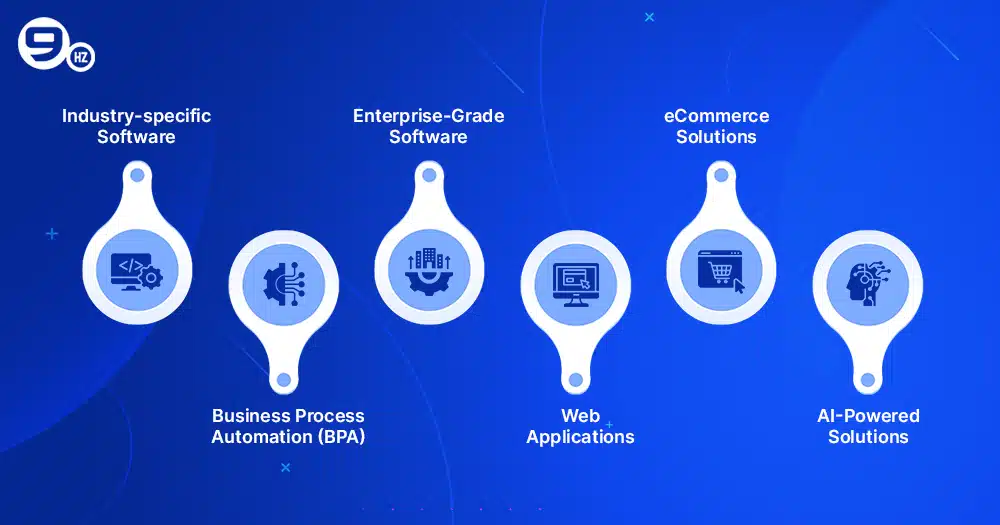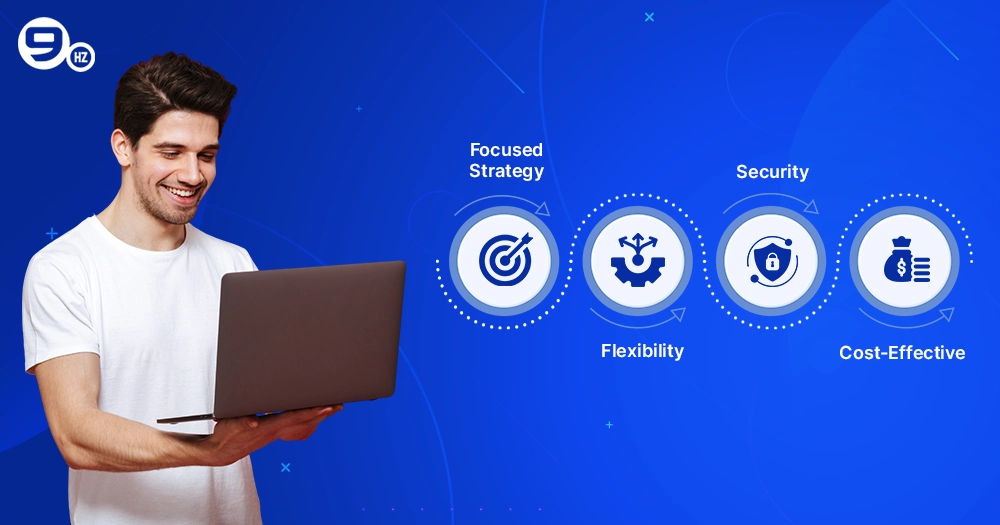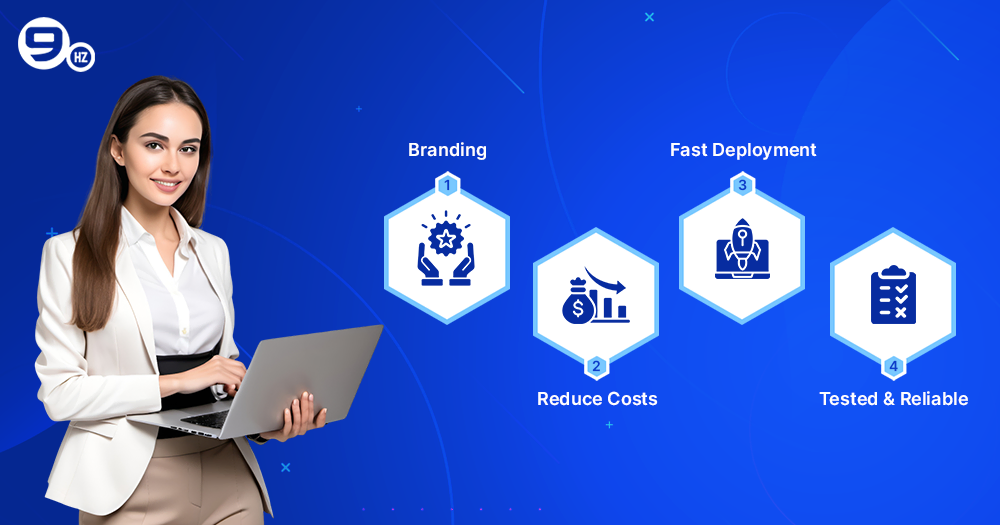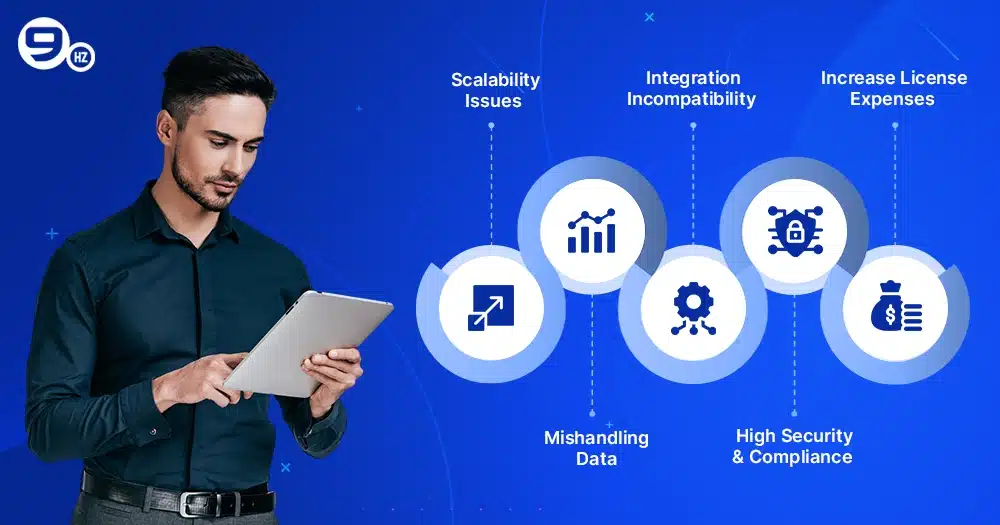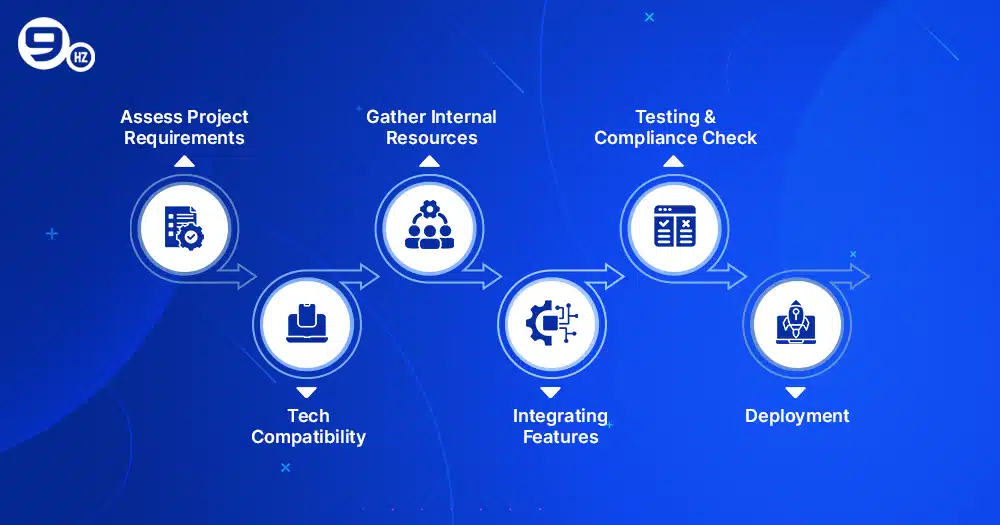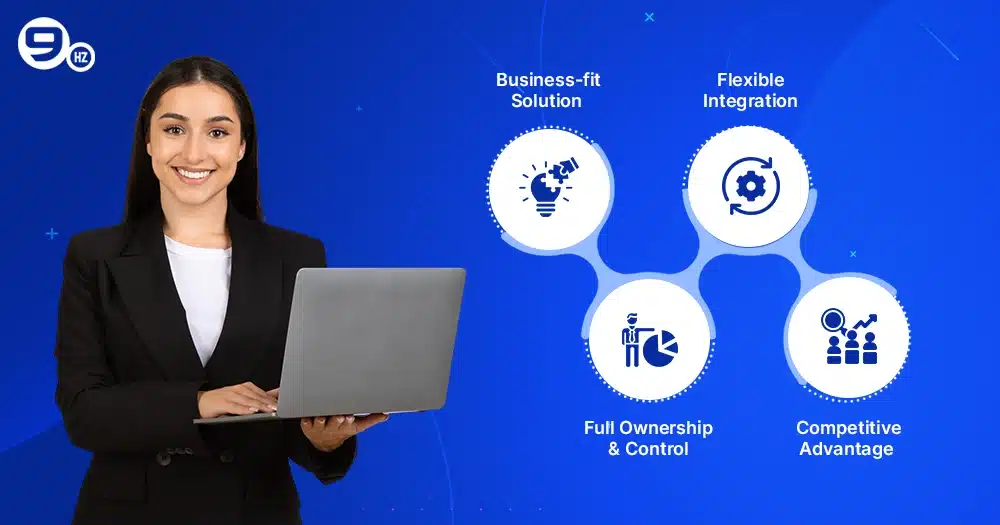In the era of off-the-shelf software solutions, companies are shifting towards the best approach that gives an advantage in terms of functionality and costs. So, how to decide between custom software and white label software, custom software development that meets the specific needs of organisations or user demands. It offers a personalised approach to ensure that software aligns with business objectives, preferences, and workflows, providing a competitive edge and flexibility. We can look at an example of Starbucks, which follows custom development for its AI platform, named Deep Brew, contributing to a 30% increase in revenue through its loyalty member program in 2023.
White label solutions provide a pre-built solution without building from scratch and allow businesses to launch software quickly. Walmart uses white label to partner with Instacart as a backend service provider and compete with Amazon Fresh to develop its own logistics tech stack. So, let’s have a broader look at a comparison of custom and white label software development with the help of this detailed blog, and understand how the right software development services can impact your choice.
What is Custom Software Development?
Custom Software development focuses on the process of creating software to target specific business needs and improve user experience. Whether you’re hiring for an in-house team or outsourcing vendors, the basic procedure starts with identifying specific business needs, designing technology, and integrating operational frameworks. Custom development provides more scalability and customised features to align with business goals and objectives.
Based on integration, here are the following types of custom software development:
Industry-specific Software: It targets software designed specifically to meet industry requirements, including retail, manufacturing, finance, healthcare, and education.
Business Process Automation (BPA): Custom development targeted to automate specific business processes, like workflow automation to improve productivity, reduce manual tasks, and increase efficiency.
Enterprise-Grade Software: Here, comprehensive software is developed to target specific functions, including Business Intelligence, Supply Chain Management, or ERP.
Web Applications: Software applications developed to enhance customer experience through web portals and self-service platforms for specific functions. It can be developing LMS (Learning Management System), admin dashboards, or online booking applications.
eCommerce Solutions: Custom software development helps businesses manage eCommerce operations like inventory management, payment processing, online storefronts, and order fulfillment.
AI-Powered Solutions: This custom development focuses on automation to improve decision-making for performing predictive analysis. It drives more efficiency and innovation through features like chatbots and virtual assistants.
Benefits of Custom Development
Unlike commercial off-the-shelf software that is designed to improve efficiency and productivity, custom software development provides another significant advantage. Here are the listed benefits:
Focused Strategy
Custom software development focuses on specific pain points and functions that help businesses to follow core objectives. Due to a flexible approach, it can integrate with existing systems to bring a unified experience that complies with changing requirements.
Flexibility
Custom software development helps to adapt to frequent changes or updates for businesses to provide a competitive edge. As per the industry norms, developers use quality tools and software that comply with security standards for usability and maintenance.
Security
This development approach can enhance security by handling data and adding components to implement access control, data storage, security practices, faster development, risk assessment, and compliance measures.
Cost-Effective
With custom development, you can lower the cost of ownership over time; however, there are high upfront costs. It doesn’t require an ongoing license fee, which makes it an ideal budget-friendly option in the long run. Also, you can adopt a phased implementation.
Drawbacks to Consider for Development
Custom development attracts major benefits and is commonly preferred by companies, yet it comes with major challenges:
Longer Development Time
Custom development might take more than weeks and months to complete the procedure to build, test, and deploy. It takes more time to spend on research to define business needs and expectations.
Risk of Selecting the Wrong Order
These development methods increase dependencies on agencies and developers, also switching over vendors can be difficult. Relying on the wrong vendors might affect development with unprofessional behaviour and low-quality software.
High Initial Cost
For custom development, there is a requirement to invest in designing, testing, and development. Based on complexities and change requirements, the development cost might increase to create an MVP product before scaling.
What are White Label Software Solutions?
White-label software is preferred by companies that do not want to build software from scratch but want to maintain their brands. It refers to a digital asset rebrand by an organisation that has not initially developed the platform. Software development providers create software and offer resale rights to companies in exchange for subscription fees.
Most white label software is made through the SaaS (Software as a Service) model that makes it easy to customise through logo, color scheme, and domain. It is ideal for software deployment to introduce to the market in less time, and it takes less time to build from scratch.
Benefits of White Label Software
Companies are adopting white-label software that allows them to launch a branded product without having to invest in long-term development or production processes. Here are the top benefits of white labelling:
Branding
It increases brand loyalty by offering high-quality white label products to launch under a specific brand name, colors, and domain without building it. This can result in enhanced brand recognition.
Reduce Costs
White labelling reduces a significant cost burden for investment into production, research and development, and marketing. As the provider bore the initial cost, it cut down overhead costs to increase profitability.
Fast Deployment
Here, you don’t need to invest in resources to build software from scratch. It’s all about taking software from a third-party, adding your branding, upgrading settings, and customising a few features before launch, which saves major development time.
Tested and Reliable
White label software is offered to the market after proper testing to check for usability and features by other businesses. It creates less scope for functionality issues and fewer bugs to track in the software.
Drawbacks to Consider for Development
Apart from benefits, white label software has certain drawbacks that make it not an ideal fit as a pre-built solution. So, businesses must consider these challenges before investing in:
Less Scope of Differentiation
As the white label software is resold to different companies, it lacks differentiation, and there is no chance to stand out with a unique product. Sometimes, it can lead to product commodisation where customers find identical software in the market.
High Licensing Cost
Initially, white label software follows a subscription and pay-per-user model that signifies ongoing payments. But in the long run, it might not be affordable as the user base grows by paying for premium features, support, and scale.
Limited Integration
There are too many restrictions for white labelling for integration with other systems, including analytics tools, payment gateways, ERPs, and CRM. As the backend is not in control, it is difficult to modify using APIs, which results in data silos and inefficiencies.
Custom Software vs. White Label: Key Differences
Custom software development provides a personalised solution for businesses to align with unique needs and flexibility. A white-label solution offers easy market entry, cost efficiencies, and easy customisation to standard needs. Here is the table representing the major differences between the two development processes:
When You Should Choose Custom Software Development
Software development is the need of the hour as online operation is the foundation of business in 2025. Now, the market has varied types of methods, including off-the-shelf development, prototyping, white label, cloud-based development, or full-stack development. Why choose custom software development? Here are the best reasons:
Scalability Issues
If your existing software development system deals with scalability issues, it’s a sign for custom software development. It helps businesses to deploy customisable features that scale with operations and comply with the requirements.
Mishandling Data
Many companies face issues with data mismanagement during software development, which can be resolved through custom development. This was designed as a flexible and cloud-based database and reporting system with customisable dashboards and data visualisation.
Integration Incompatibility
In case your development team is facing integration complexities, this is another sign to choose custom software development. This custom framework is designed in a way that aligns with business values and promotes communication flow.
High Security and Compliance
If you are aiming for compliance and security measures, custom software development will be an ideal industry-specific solution. It helps to address challenges and comply with regulations by protecting sensitive data for businesses.
Increase License Expenses
Depending on multiple third-party vendors for software development increases the burden for upkeep costs and routine license expenses. Custom software development comes as personalised digital assets that eliminate these cost burdens.
When White Label Solutions Make Sense
Simply, white label solutions will make more sense if you are looking for a pre-built solution developed by a third party. However, there are other good reasons to depend on white label development to achieve cost efficiency and flexibility:
Fast Deployment
In scenarios where the company is looking to launch software faster, following a trend, or during a seasonal window, white label software is the best. It helps to skip major parts of the development cycles, rebrand, and deploy within a short timeframe.
Focus on Branding, Not Tech
If your primary function is branding and not targeting high-tech solutions, it is time to rely on white label software. It helps you to focus on providing the best product and offering software as part of your brand.
Minimum Risk
Investing more time and resources in software development might be risky if the product fails. So, white label products significantly reduce the risk with low upfront investment and ongoing technical burdens.
Target Niche Market
Once you are targeting a niche market and audience, white label software brings more flexibility through customisation. You will find a pre-built solution with specific branding, language, and content fit targeting the customer segment.
How to Decide: A Step-by-Step Framework
Software development frameworks are considered as the blueprint for developers, and the right approach will guide them in developing a project with specific functionalities. Whether you are developing frontend or backend, it is essential to follow the comprehensive guidance:
Step 1: Assess Project Requirements
The basic step is to assess the project requirements and specify goals for the types of software you are building. It helps you to create a roadmap on how to proceed with designing, feature integration, functionalities, and complexities.
Step 2: Tech Compatibility
You can evaluate for framework compatibility and test for existing technologies by exploring the tech stack for programming languages, tools, and databases. It helps to navigate integration challenges and follow a simplified development process.
Step 3: Gather Internal Resources
Whether you are hiring an internal development team or freelancers, developing the internal resources with the right tools and infrastructure will help to scale the team’s capacity to build the perfect product.
Step 4: Integrating Features
Based on your business model and user workflow, you can estimate must-have features, user interface, scalability, maintenance, and easy deployment. You can map out core requirements that ensure data flow, design system, and process.
Step 5: Testing and Compliance Check
Next, after developing the complete model of software with feature integration, it is essential to check for function testing and detect bugs earlier. Also, monitor for compliance measures and industry standards.
Step 6: Deployment
Lastly, choose the right hosting, whether on-premise or cloud infrastructure, with an easy and fast deployment through error-free release. For ongoing maintenance, you can set up alerts for server load and downtime, and track suspicious activities.
Why Custom Software Pays Off in the Long Run?
Opting for custom software development will help in the long run, depending on a majority of factors, including operational efficiencies, cost savings, scalability, user adoption, and security measures. Let’s have a snap at long-term profitability for custom development:
Business-fit Solution
Custom software is built specifically for assisting the unique business needs and aligns with a unique workflow that ensures its relevance for long-term use. It maximises efficiency and adds more relevance to multiple uses.
Full Ownership and Control
There is no burden of vendor lock-in as custom development gets full control over updates, features, and licensing. So, it creates independence to choose when you want to upgrade, scale, and customise with software.
Flexible Integration
Custom software development allows for seamless integration using existing tools that ensure long-term usability. These custom-built software perfectly sync with the existing system and further allow integration with third-party APIs.
Competitive Advantage
If you aim to stand out in terms of features and functionalities, custom software development provides unique integration to surpass competitors. This helps to showcase differentiation to innovate faster and try multiple services.
How Ninehertz can help you with Custom Software Development?
Are you looking for the right development partner to get a customised and scalable solution? NineHertz is here to build the perfect software depending on your tailored requirements. We have expertise in custom software development, AI and ML integration, data upgrades, application development, IT consulting, and resource augmentation.
With a consistent 15 years of experience, NineHertz has a pool of developers with domain expertise to deliver innovative solutions with AI and ML development. Whether you want to develop ERP, supply chain, asset management, or fleet management software, you can trust our experts for a flexible model of development backed by reliable enterprise software development services.
Conclusion
Businesses are getting smarter when it comes to software development; they don’t want to settle for less. Emerging software technologies like progressive web apps, blockchain adoption, and Web 3.0 have a high potential to accelerate your efficiency. So, the choice of whether custom or white label software depends on different factors and business needs. Custom development allows for flexibility and design for business-fit solutions, and assesses market specifications. White-label software is in demand due to its instant solution, rapid deployment, and no burden of development.
Both the development meets varied expectations and deploys a range of software, includes HR and Payroll management, SaaS platforms, LMS, healthcare management, logistics, and fleet management software with customisable features to deliver the best-fit product.
Frequently Asked Questions
What is the difference between custom software and white label software?
Custom software is developed to comply with specific business needs, while the white label software has limitations, being a pre-built solution to use for branding and customization.
Which is better: custom software or white label?
If you are looking for a long-term, scalable solution, custom software is an ideal choice, while white label software is ideal for a quick and fast launch.
Is custom software more expensive than white labels?
Yes, custom software is more expensive due to its higher upfront cost and infrastructure, while white label software is purchased from third-party vendors.
How long does it take to build custom software?
It might take between 2 to 12 months to deploy a fully customised software; however, the timeline might vary depending on features, hosting, technology, security, and user experience.
Can I scale a white label software solution?
Scaling is possible, but there is a dependency for vendors to expand for features, infrastructure, and pricing.
Do I own the code with custom software?
Yes, custom software provides full ownership of code and intellectual property rights.
Is custom software more secure than white labels?
Yes, custom software is highly secure due to internal development and integration for data protection and compliance standards.
When should a business choose white label software?
If you have a limited budget, less tech complexity, and are looking for fast and easy deployment, you can prefer white label software.

